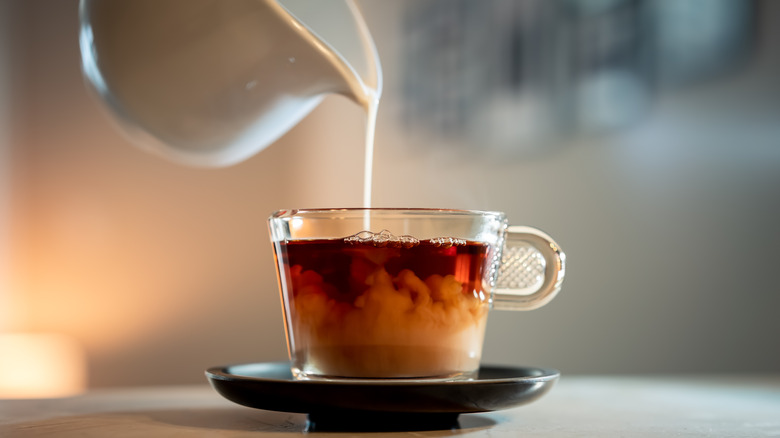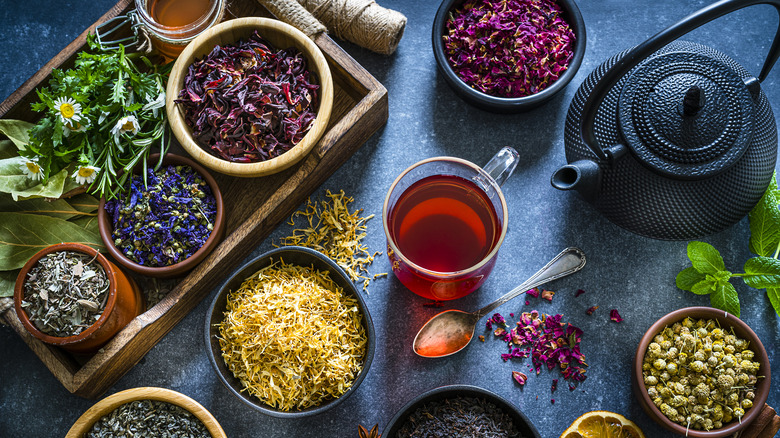The Scientific Reason Milk Curdles In Tea And How To Prevent It
How do you take your tea? Everyone from casual tea drinkers to avid tea aficionados seems to have a preference. Some people like to add a few lumps of sugar. A whopping 42% of people opt for tea bags over tea leaves. Many also enjoy a splash of milk in their brew; however, you may find it frustrating to make this addition if your milk always curdles the second it hits the tea. If this happens to you, know that your milk hasn't suddenly gone bad — this usually occurs due to the heat or the acidity of your tea. Let's take a deeper dive into the science of this phenomenon and how it can be prevented.
Let's begin by understanding what curdling is. The components of milk can be split into two categories: its liquid — water — and its solids — protein and fat. Normally, the solids in milk are so small and evenly spread out that you can't tell they are there. Certain changes in the condition of the milk, though, can make these solids clump together, or curdle, causing the unpleasant lumpiness we're all familiar with. In the case of tea, adding cold milk to tea that is too hot, making tea that is naturally acidic, using old milk, or adding acidic ingredients like lemon can all cause this to happen.
How to keep milk from curdling in your tea
There are several steps you can take to ensure that milk does not curdle in your tea. When it comes to handling temperature changes, be sure to let your tea cool slightly before adding milk, or gently warm the milk before adding it to the tea so that the difference in temperature is not so large. Stirring milk slowly into tea is another effective way to avoid curdling.
In terms of addressing acidity, opt for less acidic teas and inclusions if you plan on adding milk to your cup. Adding acidic ingredients to milk, which is already slightly acidic, can tip the pH into a level conducive to curdling. For example, you will want to avoid mixing milk and lemon into the same tea. Less acidic teas that go well with milk include black tea, green tea, and herbal teas that are not fruit or hibiscus-based.
If you have your heart set on a scalding cup of fruity tea, one final solution is to simply use a milk alternative or dairy-free creamer. These substitutes have a different composition than actual milk and are often made using emulsifiers like plant oils and dipotassium phosphate that prevent clumping. As such, they are less likely to curdle — though some, like soy milk and almond milk, can still curdle under the right conditions.

